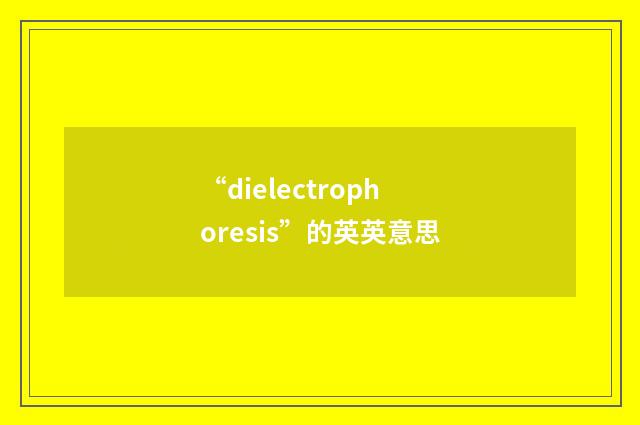| 单词 | dielectrophoresis |
| 释义 | dielectrophoresis, n. Chem.|daɪɪˌlɛktrəʊfəˈriːsɪs|
[Blend of dielectric n. and electrophoresis n.]
The migration of particles of a dielectric, or other particles carrying no net charge, towards the position of maximum field strength in a non-uniform electric field.
1951H. A. Pohl in Jrnl. Appl. Physics XXII. 869/1 The phenomenon seen in the relative motion of suspensoid and medium resulting from polarization forces produced by an inhomogeneous electric field is defined as ‘dielectrophoresis’. 1972Science 23 June 1336/1 Unlike electrophoresis, dielectrophoresis will occur in a-c as well as d-c fields provided that the frequency is low enough for the dipolar orientation to follow the field reversals. 1977Oil & Gas Jrnl. 28 Mar. 73/1 This new system utilizes the principles of dielectrophoresis to remove fine solid particles from hydrocarbon streams. 1983Financial Times 31 May 18/2 The a.c. field regiments the cells, lining them up ‘shoulder-to-shoulder’ between the electrodes. This is achieved with a frequency of 10,000 hertz–1 megahertz by a process called dielectrophoresis. |

英语词典包含277258条英英释义在线翻译词条,基本涵盖了全部常用单词的英英翻译及用法,是英语学习的有利工具。
相关内容11:
相关热词搜索:dielectrophoresis英英词典英英释义英语词汇意思用法释义英语
